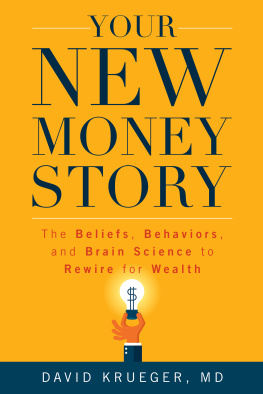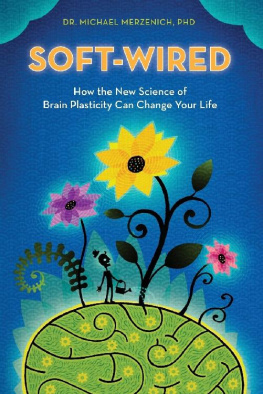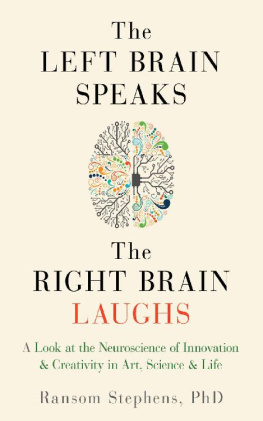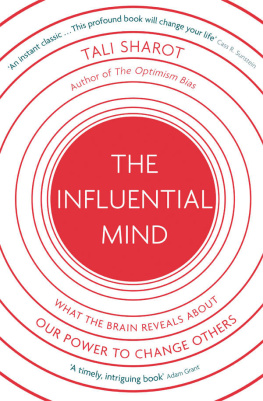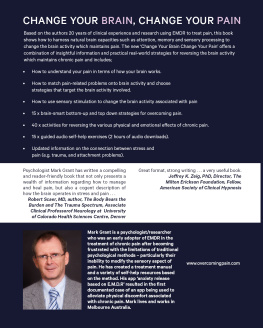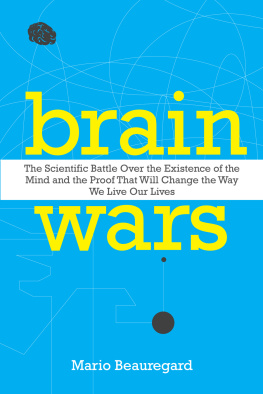Impellizzeri - Why Cant I Change?
Here you can read online Impellizzeri - Why Cant I Change? full text of the book (entire story) in english for free. Download pdf and epub, get meaning, cover and reviews about this ebook. year: 2012, publisher: Sunrise River Press, genre: Home and family. Description of the work, (preface) as well as reviews are available. Best literature library LitArk.com created for fans of good reading and offers a wide selection of genres:
Romance novel
Science fiction
Adventure
Detective
Science
History
Home and family
Prose
Art
Politics
Computer
Non-fiction
Religion
Business
Children
Humor
Choose a favorite category and find really read worthwhile books. Enjoy immersion in the world of imagination, feel the emotions of the characters or learn something new for yourself, make an fascinating discovery.
- Book:Why Cant I Change?
- Author:
- Publisher:Sunrise River Press
- Genre:
- Year:2012
- Rating:5 / 5
- Favourites:Add to favourites
- Your mark:
- 100
- 1
- 2
- 3
- 4
- 5
Why Cant I Change?: summary, description and annotation
We offer to read an annotation, description, summary or preface (depends on what the author of the book "Why Cant I Change?" wrote himself). If you haven't found the necessary information about the book — write in the comments, we will try to find it.
Why Cant I Change? — read online for free the complete book (whole text) full work
Below is the text of the book, divided by pages. System saving the place of the last page read, allows you to conveniently read the book "Why Cant I Change?" online for free, without having to search again every time where you left off. Put a bookmark, and you can go to the page where you finished reading at any time.
Font size:
Interval:
Bookmark:
To my sweet little Sydney.
Thank you for choosing me as your mom in this lifetime.
Why cant I change? This is one of the most fundamental questions people ask themselves at some point in their lives, and it can also be one of the hardest to answer. Dysfunctional behavior patterns can become so entrenched that changing them seems like an insurmountable feat. Many people give up, resigning themselves to a life that isnt what they truly want.
In this important work, Dr. Shirley eloquently explains how the foundation of our earliest emotional attachments gives rise to dysfunctional patterns of behavior. She teaches us that as far back as infancy, these attachments influence how our brains develop and what thoughts and beliefs get set into place and often remain throughout our lives.
From the moment we are born, the attachment process begins and by our third month of life, the person we are primarily attached to is already imprinted in our brains. This individual is most often a parent or primary caregiver, who has the opportunity to either nurture us and build our self-esteem or to remain emotionally distant and erode our sense of self-worth. How this attachment figure treats us during these early formative years has a profound effect on how our brains develop and how we perceive ourselves and others in the future.
In our culture, we are taught to believe that after a certain age, we should stop blaming our parents for the problems in our lives. Dr. Shirley helps us realize that blaming our parents is not the road to change. Instead, gaining an understanding of how our parents influenced and shaped our development is the most effective means for letting go of our self-destructive behaviors.
Why Cant I Change? explains this process and clarifies how it can provide the building blocks we need to become who we truly want to be, as well as offer us the emotional and practical tools to change and move beyond our self-destructive patterns. When we understand the patterns behind our self-doubts, those patterns lose their power over us, and we can adopt new, healthy ways to understand ourselves and the people who are important to us. That is the key to how we can truly change and live healthier, more fulfilling lives.
Gary Small, MD
Professor of Psychiatry
David Geffen School of Medicine
UCLA
Why do people make the same mistakes over and over again? Why do we choose the wrong partners, stay in dead-end jobs, or fall into bad habits or addictions? Why are some people perpetual victims? Why cant we just change whatever isnt working and get on with it?
These questions about the human condition fascinated me and led me to a career in psychology. During my early years in private practice, I noticed that many of my patients had a distinct pattern of self-destructive behavior that seemed to repeat over and over again. I found this pattern pervasive in almost all areas of their lives, although it was most apparent in their intimate relationships.
When I pointed this out to my patients, many had no idea there was a pattern at all. Those who admitted being aware of their patterns became aware of them only after the patterns were established. They were not conscious of what had created these patterns and what had gotten them to this place. They seemed to be sleepwalking through life. I began to research this phenomenon. I knew from my studies that childhood experiences affect our behaviors and the way we think about life. During a fateful trip to Tahiti, I was introduced to attachment theory, which specifically correlates our feelings, thoughts, beliefs, and what we expect in life as adults to the way we attach to our primary caregivers as infants. The latest studies in attachment and brain development indicate that the effects of these early experiences shape the way our brain develops, causing us to behave in ways that we may not be aware of. As I learned more and more about attachment in early life, it all began to make sense. The programming that begins in infancy is stored in the unconscious. When it is triggered, it ignites a pattern of behavior that is simply a reaction to that early programming. Thanks, Mom and Dad!
With this knowledge, I began to better understand the psychological defenses, emotional reactions, beliefs, and behaviors my patients were displaying. It was not simply a matter of blaming our parents; their part in the process is in the past and often unintentional, and we cant change that. However, understanding why the behavior exists is the first step in changing it. It became clear that helping my patients gain insight into their patterns led to awareness and that awareness presented a choice for them: either stick with their old behaviors and continue to sleepwalk through life or try new behaviors and release themselves from their unconscious patterns, ultimately living the lives they wanted. Insight and awareness alone do not produce change, but new experiences do. And new experiences create new neural pathways in the brain and literally change it. The adage You cant teach an old dog new tricks is a lie.
I wrote this book to share my insights and strategies beyond the scope of my practice. When we become aware and let go of old patterns that no longer work in our lives, we can change our behaviors and stop sleepwalking through life, free from the effects of the past. How exhilarating and grand!
Id like to thank everyone who serendipitously came together to make me who I am today, beginning with Judith Pillsbury, RIP, whose understanding and kind words I will never forget, and continuing with my first two mentors, Dr. Paul Abramson, who believed in me when I didnt and Dr. Lawanda Katzman-Staenberg who taught me everything I know. Matt Jackson introduced me to my wonderful manager, Marilyn Atlas, who found Mike Farris at Farris Literary Agency who decided to take a risk and took me on as a client. He, in turn, found Sunrise River Press, and I was lucky to have them take a chance on me and publish my words. Karen Chernyaev is a kind, patient, and intelligent editorial director who had the wherewithal to put me together with Debby Young. I have never had the experience to work with an editor and feel blessed to have worked with such a talented one from the get go. Debby immediately got me, heard my voice, and understood the message I wanted to convey and made me sound eloquent doing so!
To my friends who supported me and understood when I went MIA to write and meet my deadlines. And to my family: my mother who I know would have been very proud of her gordita, Frankie-boy, and especially my sister Jackie, who I have always looked up to and with whom I am extremely proud to share a wonderfully close relationship. You were instrumental in helping me, always inspiring me with kind words and giving me great feedback while writing this book.
Gigi and Gary Small have always been a wonderful support ever since that fateful day when we met on the first day of our kids nursery school.
Dr. Drew Pinsky, thank you for supporting me in this effort.
A special thanks to the scientists, many of whom I reference throughout the book, who have dedicated their lives to studying the effects of trauma. A very special thanks to Dr. Perter Levine, whose brilliance has given us a beautiful and profound way to heal our wounds.
To all of the people I have had the privilege of working with, I do not take lightly the trust you have placed in me and feel honored and humbled by it. Thank you to those who read parts of the manuscript and gave me such rich and wonderful feedback.
Last but certainly not least, my dear Sydney. I learn from you every day and strive to be the best parent I can be. I am privileged and honored to be your mom.
Font size:
Interval:
Bookmark:
Similar books «Why Cant I Change?»
Look at similar books to Why Cant I Change?. We have selected literature similar in name and meaning in the hope of providing readers with more options to find new, interesting, not yet read works.
Discussion, reviews of the book Why Cant I Change? and just readers' own opinions. Leave your comments, write what you think about the work, its meaning or the main characters. Specify what exactly you liked and what you didn't like, and why you think so.




